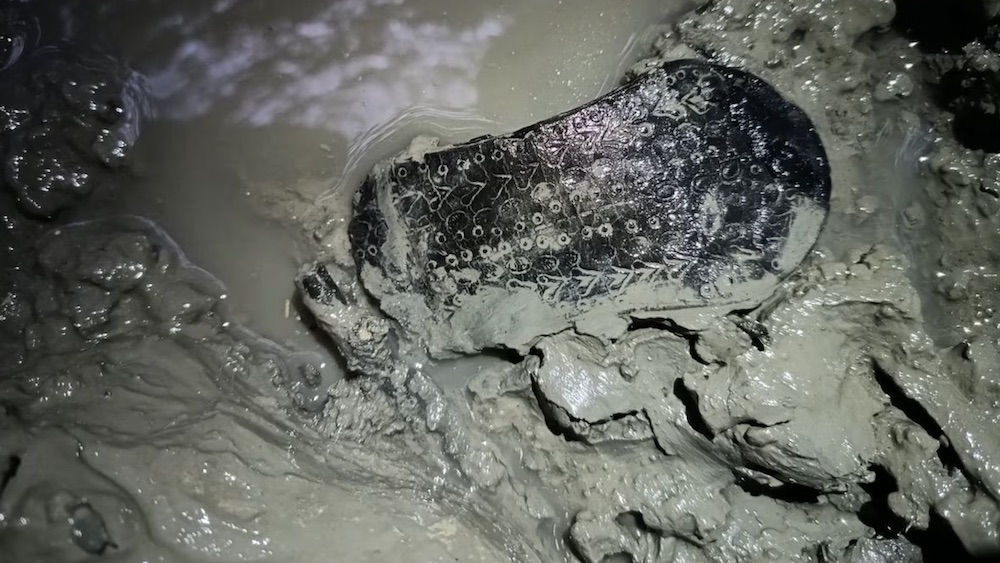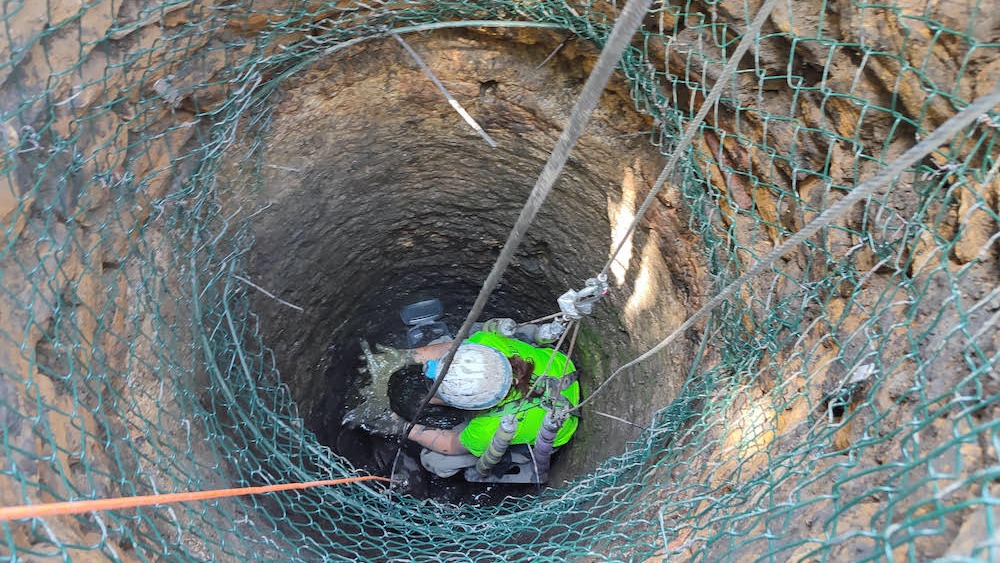2,000-year-old decorated Roman sandal unearthed in Spain
Archaeologists in Spain used a pulley system to reach the bottom of a well, where they found a 2,000-year-old Roman sandal and other artifacts.

Get the world’s most fascinating discoveries delivered straight to your inbox.
You are now subscribed
Your newsletter sign-up was successful
Want to add more newsletters?

Delivered Daily
Daily Newsletter
Sign up for the latest discoveries, groundbreaking research and fascinating breakthroughs that impact you and the wider world direct to your inbox.

Once a week
Life's Little Mysteries
Feed your curiosity with an exclusive mystery every week, solved with science and delivered direct to your inbox before it's seen anywhere else.

Once a week
How It Works
Sign up to our free science & technology newsletter for your weekly fix of fascinating articles, quick quizzes, amazing images, and more

Delivered daily
Space.com Newsletter
Breaking space news, the latest updates on rocket launches, skywatching events and more!

Once a month
Watch This Space
Sign up to our monthly entertainment newsletter to keep up with all our coverage of the latest sci-fi and space movies, tv shows, games and books.

Once a week
Night Sky This Week
Discover this week's must-see night sky events, moon phases, and stunning astrophotos. Sign up for our skywatching newsletter and explore the universe with us!
Join the club
Get full access to premium articles, exclusive features and a growing list of member rewards.
Thousands of years ago, a person was cleaning out a well in Roman Spain when one of their leather sandals slipped off their foot. Now, 2,000 years later, archaeologists have found the well cleaner's missing shoe.
Archaeologists made the discovery this summer while excavating a Roman settlement in northern Spain known as Lucus Asturum (modern-day Lugo de Llanera). With the help of a pulley system, researchers safely accessed the depths of the stone-lined well, finding the elaborately decorated Roman sandal submerged in mud about 10 feet (3 meters) below ground level, according to El País, a daily newspaper in Spain.
Researchers were impressed with the shoe's craftsmanship and level of detail, especially on its sole, which is "decorated with a profusion of circles, loops, ovals and other motifs and is made of a dark brown leather," Esperanza Martín Hernández, the principal archaeologist at Dolabra Arqueológica who led the excavation, told Live Science in an email. "The front of the shoe shows the negative stitching."
Related: Landslide reveals 2,500-year-old 'richly decorated' gold necklaces in Spain
Thanks to the well's abundance of mud, the sandal was well preserved, which is a rarity in this region, especially for an item made of organic materials such as leather.
"In [Spain] and in the rest of the Roman Empire, it is really rare to find the circumstances for the preservation of organic material in such good condition," she said. "In this case we are dealing with a well for the water consumption of a private house, and the reason for its excellent preservation is due to the anaerobic state of the deposit. All the organic materials have remained intact for 2,000 years thanks precisely to this lack of oxygen."
During the first and second centuries A.D., Lucus Asturum was known as a communications hub and administrative center and was also where the Greek astronomer, mathematician and geographer Ptolemy wrote his seminal work "Geography," according to El País.
Get the world’s most fascinating discoveries delivered straight to your inbox.
Other notable artifacts found in the well included ceramic jars, seeds, nuts, shells, a small metal ring, a necklace, beads and a bronze vessel, Martín Hernández said.
"We were also fortunate enough to recover several of the house's landfill sites, so that we now have a complete knowledge of its household goods: glass crockery, Gallic and Hispanic sigillata [tableware], fine South Gallic thin-walled-pottery, refractory dishes, common ware, local ceramics, jewelry, coins and working tools," she said. "In short, almost everything that allows us to make a good reconstruction of what this house must have been like in the early imperial period."
Although archaeologists don't yet know who the exact inhabitants of the home were, Martín Hernández thinks that "we are dealing with people with a high level of purchasing power, as the materials we are recovering show a high level of commerce."
Jennifer Nalewicki is former Live Science staff writer and Salt Lake City-based journalist whose work has been featured in The New York Times, Smithsonian Magazine, Scientific American, Popular Mechanics and more. She covers several science topics from planet Earth to paleontology and archaeology to health and culture. Prior to freelancing, Jennifer held an Editor role at Time Inc. Jennifer has a bachelor's degree in Journalism from The University of Texas at Austin.
 Live Science Plus
Live Science Plus











